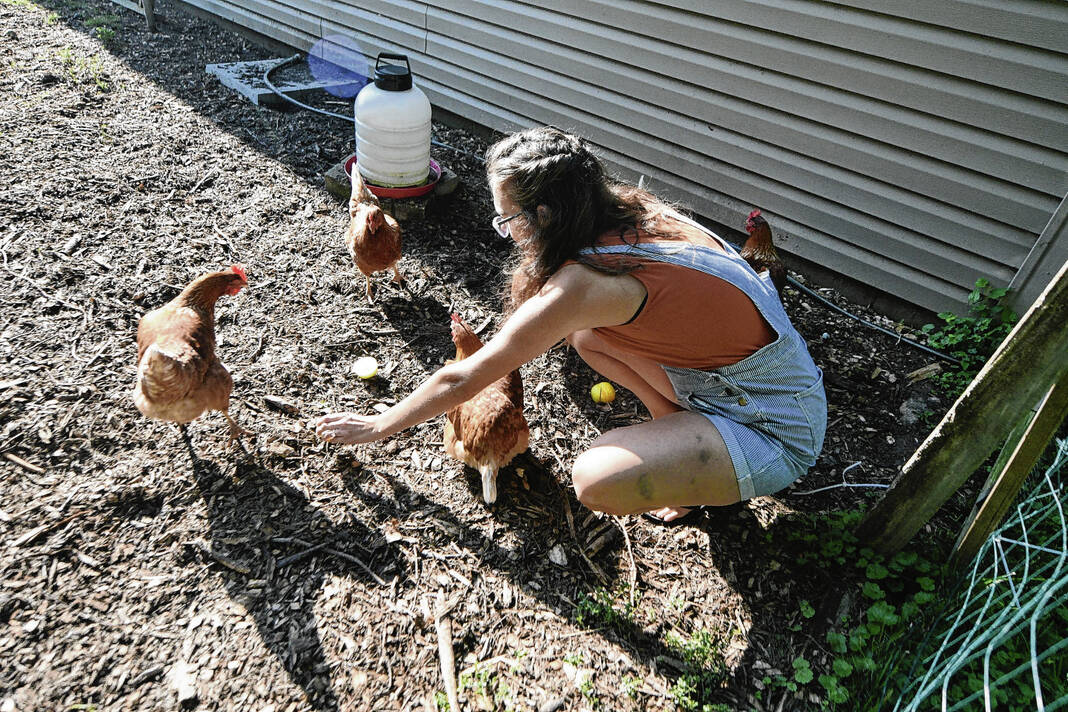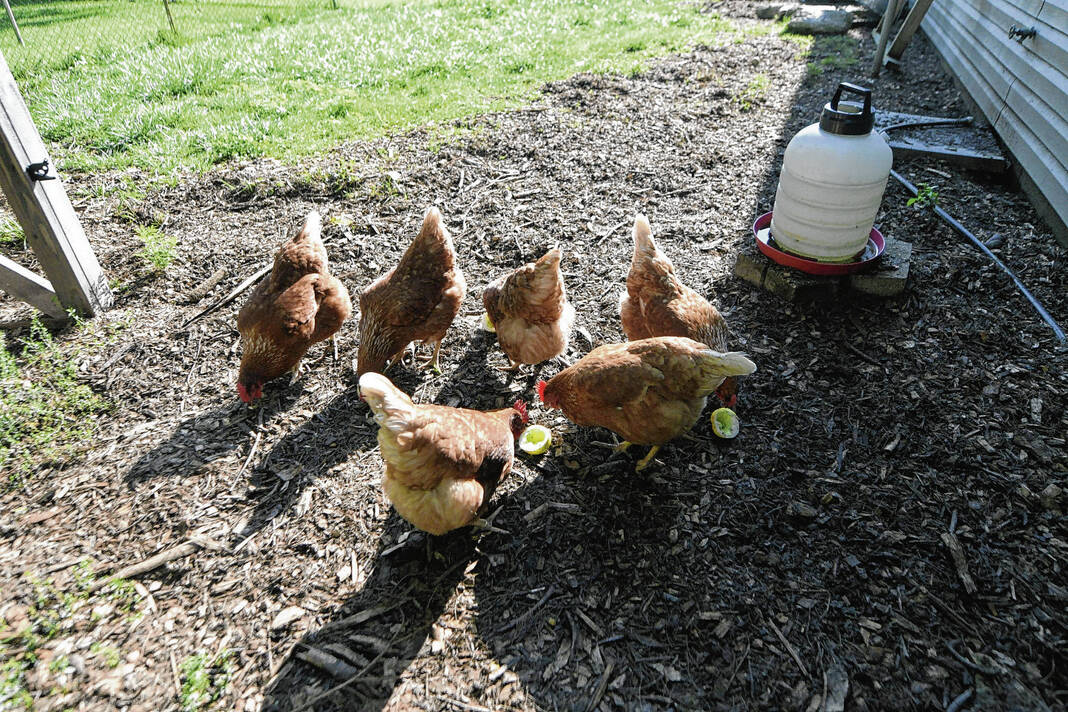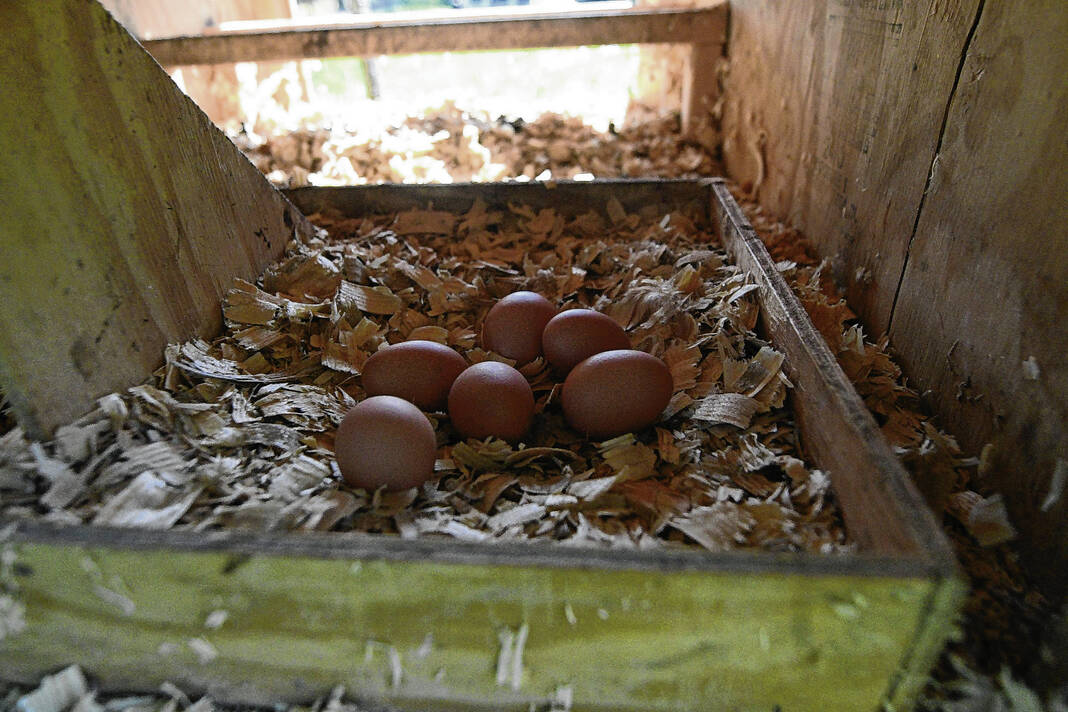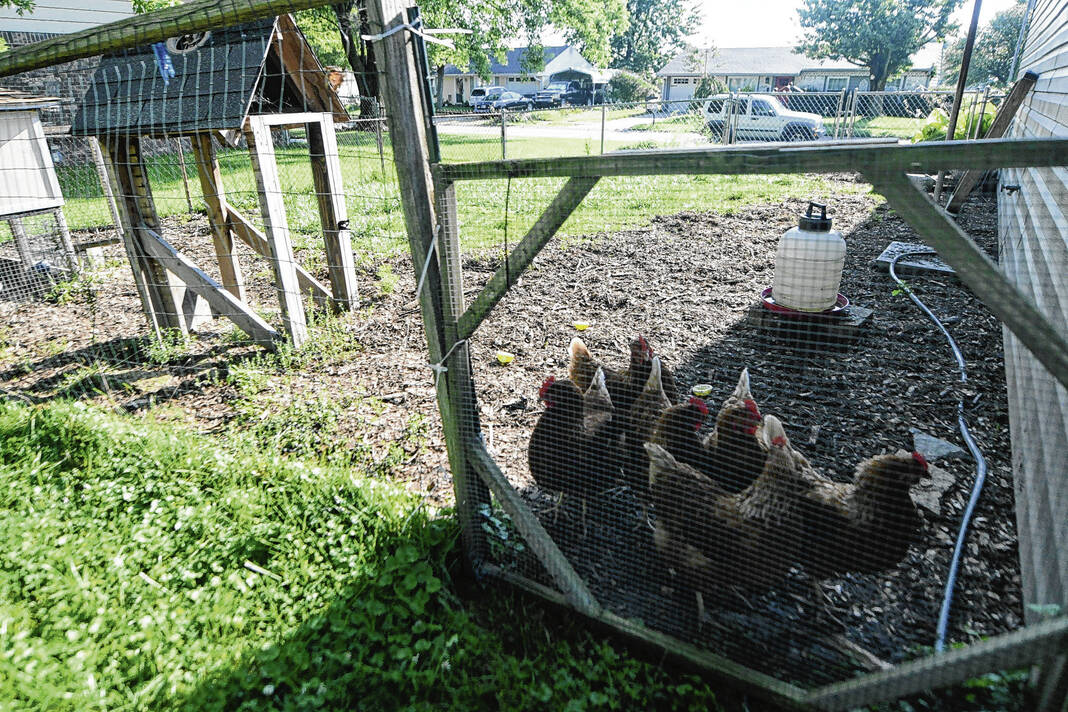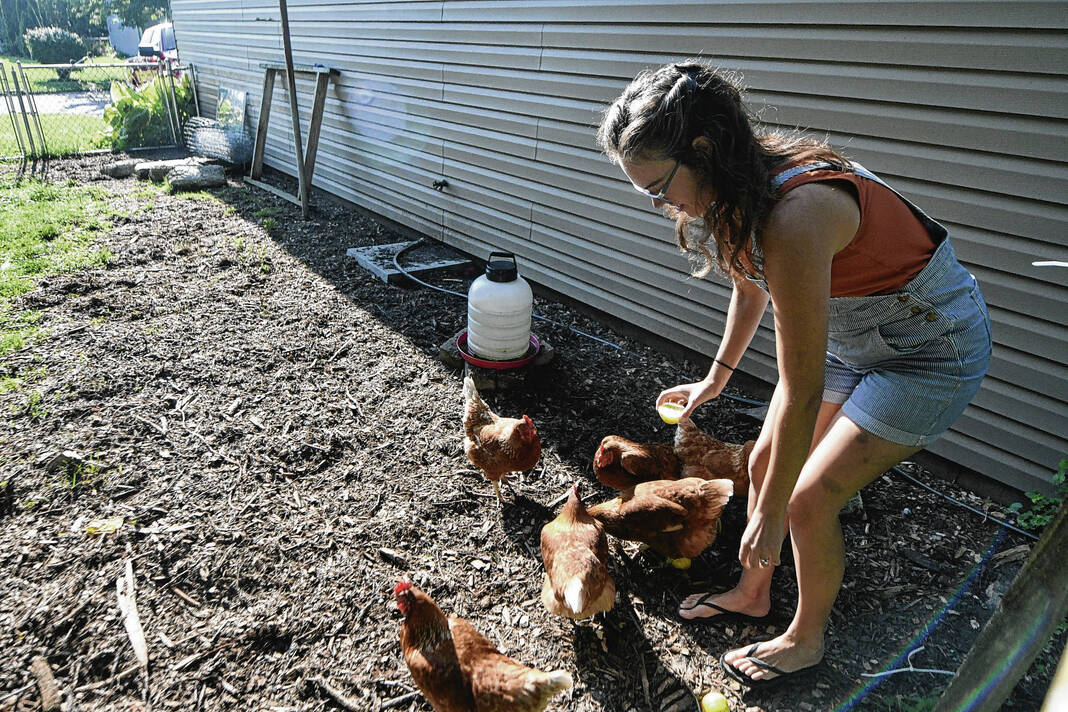When a Bargersville resident received a notice she was in violation of the town’s animal ordinance, she was confused.
Amanda Dilley moved with her husband to Bargersville five years ago, after he finished a military assignment in Germany. The couple wanted to start a new life in Bargersville, including growing their own food and raising chickens.
Dilley looked through the town’s ordinances and saw nothing prohibiting ownership of chickens. Assuming it was permitted, the couple bought four chickens and added two more to their flock earlier this year.
For years, they have been living their dream of harvesting home-grown vegetables and collecting fresh eggs from their flock of chickens.
Now, they’re at risk of losing that.
The ordinance
While there is an ordinance restricting livestock ownership, that ordinance doesn’t specifically mention poultry. The ordinance in question is from section 94.07 of Bargersville Municipal Code.
“No person having ownership of an animal shall, within the incorporated limits of the town … keep any livestock on the property having a lot size less than an acre,” the ordinance says.
The code provides room for conditional variances if the town council finds the animals aren’t disturbing residents in the neighborhood. But most definitions of livestock don’t include poultry, Dilley said.
“I used the legal definition from the U.S. (Department of Agriculture), which is used in the Code of Federal Regulations and is what governing bodies use to define the terms they use,” she said. “Brittanica and uslegal.com both say the same thing.”
Other town codes, such as those for Whiteland and Edinburgh, specifically mention poultry in a separate category. Edinburgh’s code, for example, says “it is a nuisance and shall be unlawful for any person to keep poultry or pigeons, or to maintain any place where poultry or pigeons are kept.” Whiteland recently added new language to their code allowing chickens if a permit is obtained and if the owner meets the requirements set out in the ordinance.
Bargersville officials, however, say the definition the town uses comes from the Cambridge Dictionary, which lists cows, sheep, chickens and pigs all as definitions of livestock. For violating the ordinance, Dilley said town officials gave her a notice in July alerting her she had five days to get the chickens off her property or else she’d have to pay a fine of $100 every day past that point.
She’s since gotten the fine put on hold as she tries to resolve the issue with town officials.
Fines for nuisance animal violations can go up to $1,000, but no one in the town has been required to pay a fine yet, as town officials prefer working with residents to find solutions, Development Director Joe Csikos said.
The town ordinance should be restructured for clarity, Town Manager Dan Cartwright said.
“The existing ordinance needs to be put in better shape where it’s easy to interpret,” he said. “What could happen is an ordinance could pass that says ‘no chickens inside town limits.’ There could be an ordinance that says chickens are allowed in certain areas, there could be an ordinance that has a maximum number of chickens or any combination of those things.”
The ordinance isn’t on today’s town council agenda, but Dilley said she’s meeting with town officials Friday to discuss the matter.
Conflict with a neighbor
Dilley found it strange when she got the notice last month, given she’d owned chickens since 2018. After asking around, she found out a neighbor brought it to the town’s attention.
That neighbor, John Barnes, spoke during an Aug. 14 Town Council meeting after Dilley presented a petition requesting that she be allowed to keep her chickens. While he signed the petition, he said he only signed it so she would leave him alone.
“I’m not the only one there that doesn’t want chickens. There’s other people (who) have pretty nice houses and that’s going to make your property value go down,” he said. “If you want a chicken or a barn, get a farm out in the country and buy some land.”
Dilley said the chickens don’t impact property values and there’s proof property values haven’t dropped in the neighborhood as a result of her chickens.
“I looked up the top 20 real estate markets in the U.S. and all 20 allow backyard chickens,” she said. “Houses in this neighborhood are going for a lot of money right now. The house right next to me, they just bought it, and you can see chickens very clearly in my backyard, and they said, ‘we actually ended up offering more than asking price.”
Barnes shared concerns about the chickens bringing diseases, particularly histoplasmosis, a disease that affects the eyes and is caused by breathing in spores of a fungus often found in bird and bat droppings. While the chickens aren’t bothering Barnes particularly, he said he’s bothered by them being so close to other houses.
Dilley’s chickens are fenced in and she takes measures to make sure they are clean and disease-free, she said.
“Chickens bathe themselves. They take dirt baths like elephants and rhinos. If they do a dust bath we make sure they don’t get mites. We also have diatomaceous earth, which is crushed volcanic ash. We put this in their coup so bugs don’t live there, it kills all sorts of things,” she said.
Moving forward
After Dilley meets with town officials Friday, the council will likely put the issue of amending the ordinance on a town council agenda.
Along with amending the ordinance to either permit chickens, limit their quantity or ban them completely, council members could also vote for a permit system that would allow chickens on a case-by-case basis.
Chickens should be allowed in Bargersville, and the ordinance should be clear as to how they need to be maintained, Dilley said.
“I think there should be a blanket ordinance and there should be guidelines in the ordinance,” she said. “It doesn’t put the extra responsibility on someone who has to do the permit and paperwork. It’s unnecessary work for an individual and it can be verbalized in the ordinance.”
The chickens have helped Dilley feed herself and her family, and have also served as an educational experience for her son.
“I love that my son gets to experience caring for an animal that in return feeds us,” she said. “It gives us a routine. Every morning we feed them and get the eggs together. Every day when he comes home he says ‘my chickies.’ We don’t want to have to rely on a big box store to get all our calories. We get a lot of eggs out of this and we get a lot of food from our garden. I love that I can share eggs with the neighbors. When you bring a dozen eggs and they know they came from these chickens, they get excited about it.”


